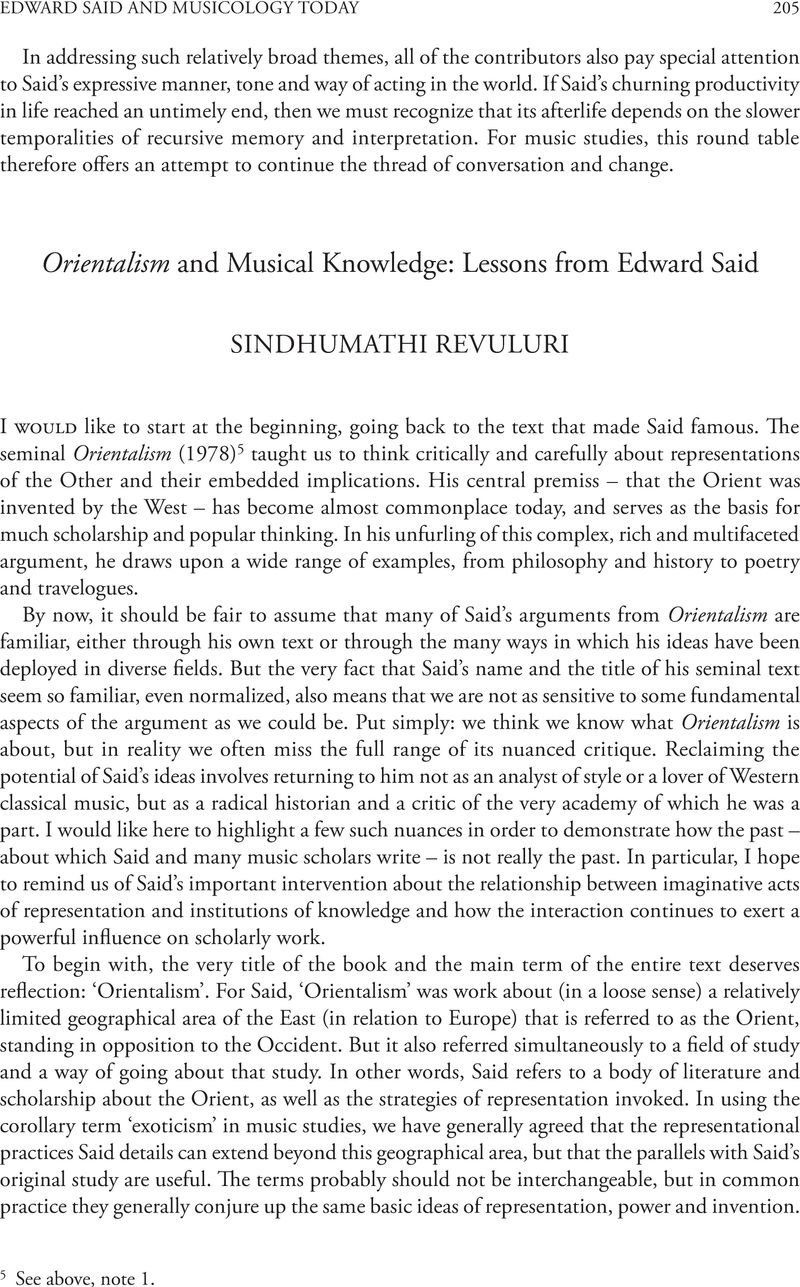Published online by Cambridge University Press: 01 January 2020

5 See above, note 1.
6 Said, Orientalism, 201–25.
7 Key texts reflecting on Said and Orientalism and dealing with musical exoticism include The Exotic in Western Music, ed. Jonathan Bellman (Boston, MA, 1998); W. Anthony Sheppard, Revealing Masks: Exotic Influences and Ritualized Performance in Modernist Music Theater (Berkeley, CA, 2001); Matthew Head, ‘Musicology on Safari: Orientalism and the Spectre of Postcolonial Theory’, Music Analysis, 22 (2003), 211–30; Timothy Taylor, Beyond Exoticism: Western Music and the World (Durham, NC, 2007); and Ralph Locke, Musical Exoticism: Images and Reflections (Cambridge, 2009).
8 Among many other examples, see Edward W. Said, Musical Elaborations (New York, 1991), and idem, ‘The Empire at Work: Verdi's Aida’, Culture and Imperialism (New York, 1994), 111–32.
9 ‘L'histoire de la musique, à la fin du dix-neuvième siècle, a fait de notables progrès. Elle ne sera pourtant point achevée avant que, étendant son champ d'action, elle ait compris dans son domaine l’étude des musiques extra-européennes. Bien différentes de celles aux formes desquelles nos races sont accoutumées depuis des siècles, celles-ci n'en sont pas moins dignes d’être écoutées par nous. Que ces arts soient inférieurs au nôtre, concédons-le, ou plutôt affirmons – le tout d'abord. Rien n'est plus naturel que cette vérité: l'Europe ayant toujours été le foyer principal de la civilisation humaine, il est tout simple que la musique qu'on y pratique ait acquis une supériorité à laquelle n'ont pu atteindre les peuples des autre parties du monde.’ Julien Tiersot, Notes d'ethnographie musicale, 2 vols. (Paris, 1905), i, 1 (my translation).
10 Matthew Head makes a similar point about the study of musical exoticism more generally when he writes: ‘Musicology domesticates orientalism as an area of research by folding it back into established frameworks of enquiry that ultimately render orientalism decorative’ (‘Musicology on Safari’, 218).
11 Said, Orientalism, 3.